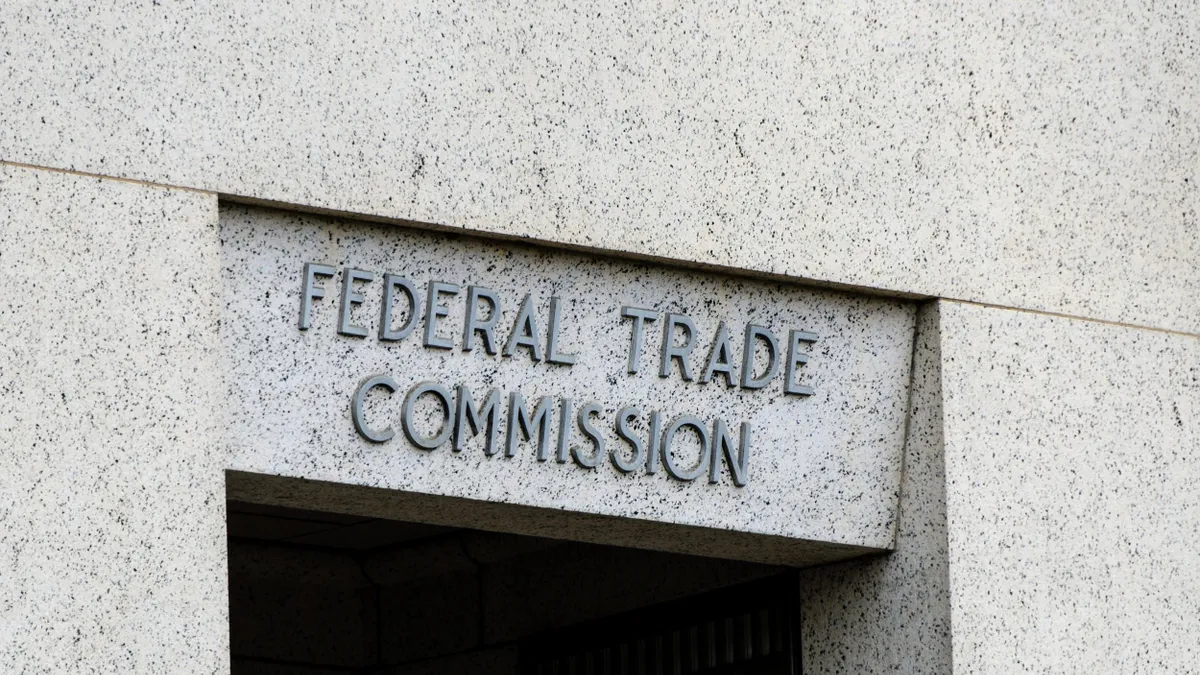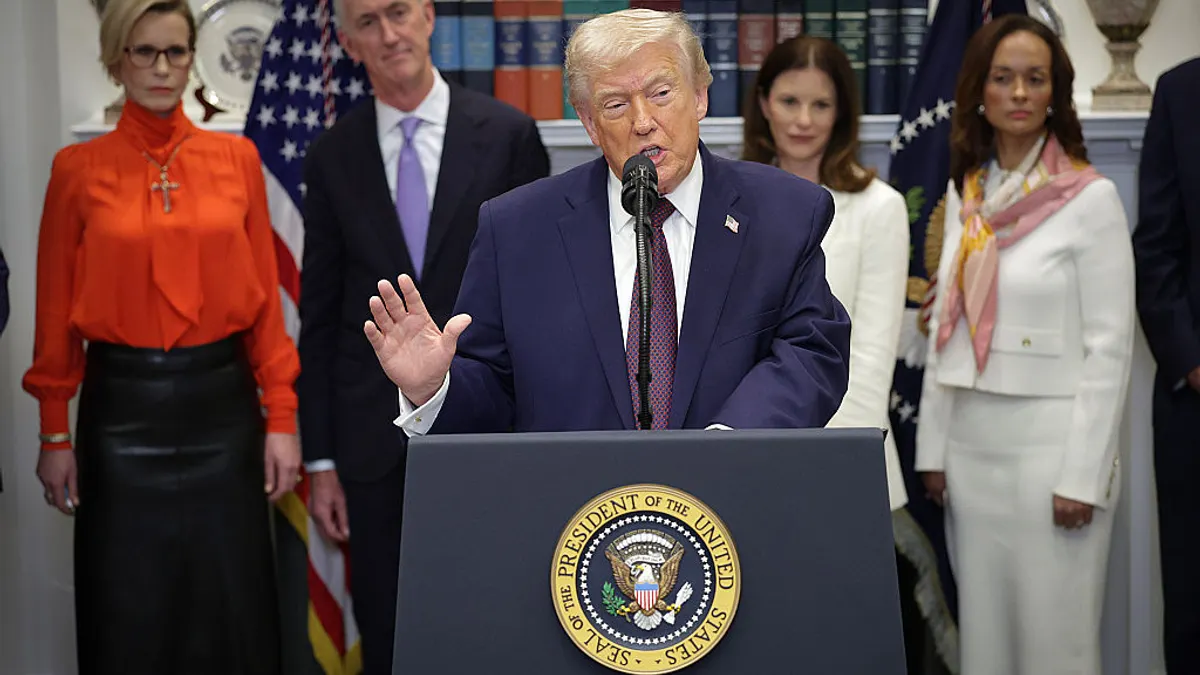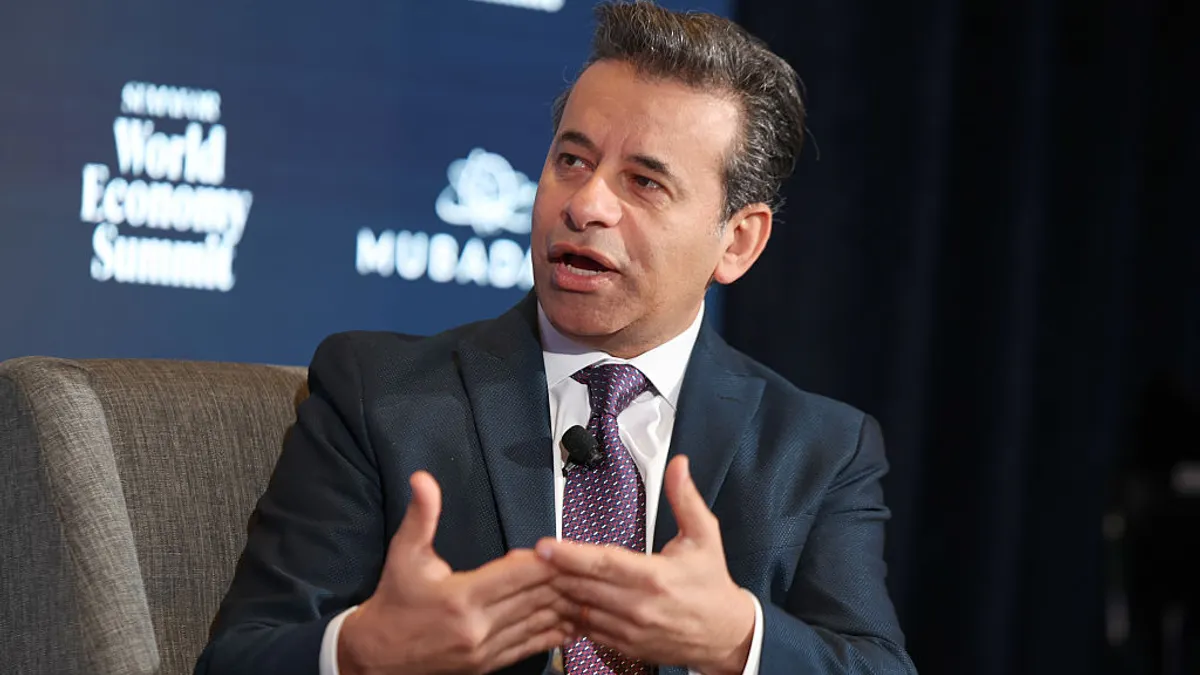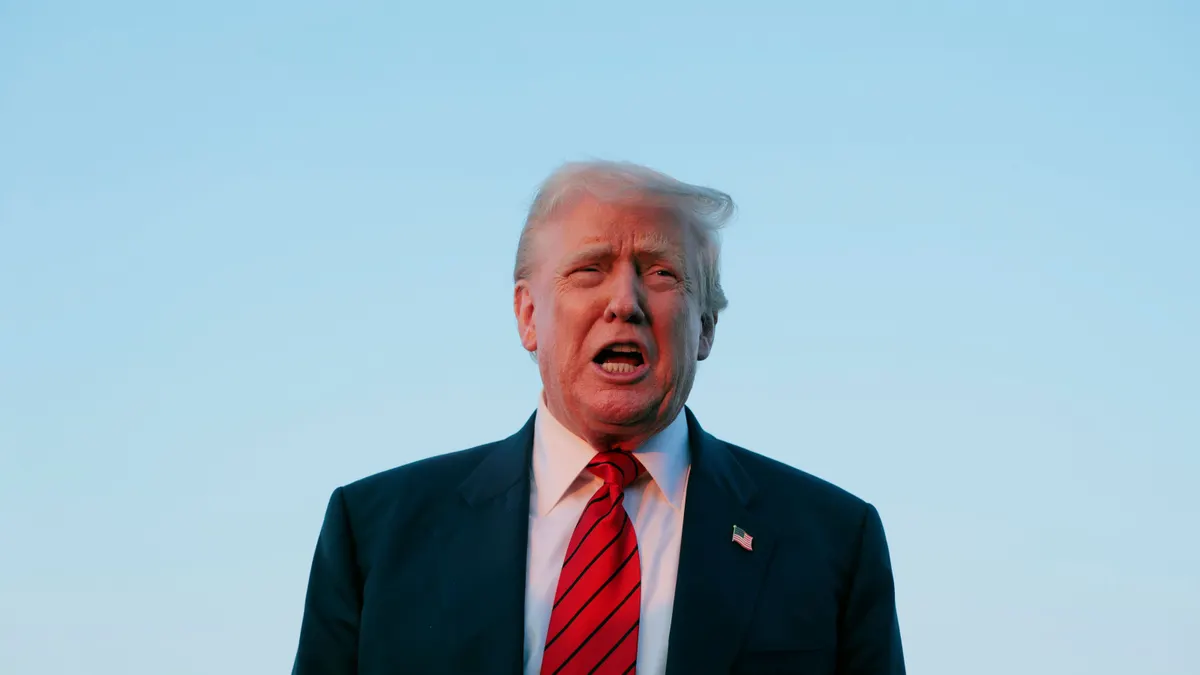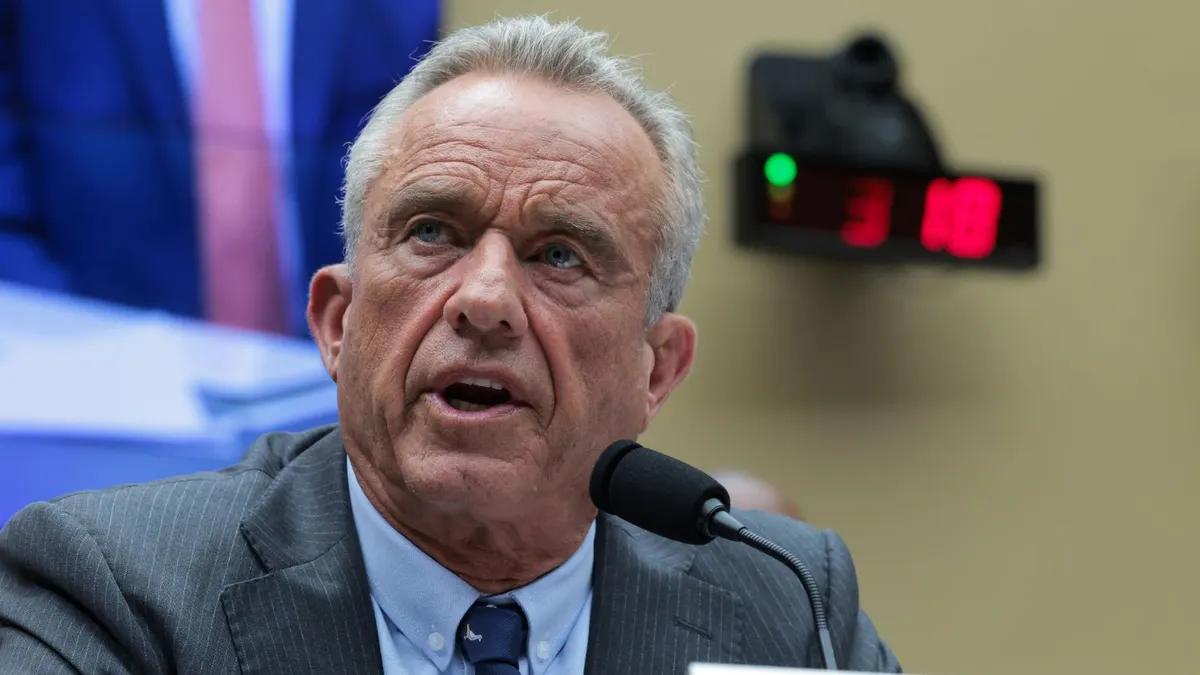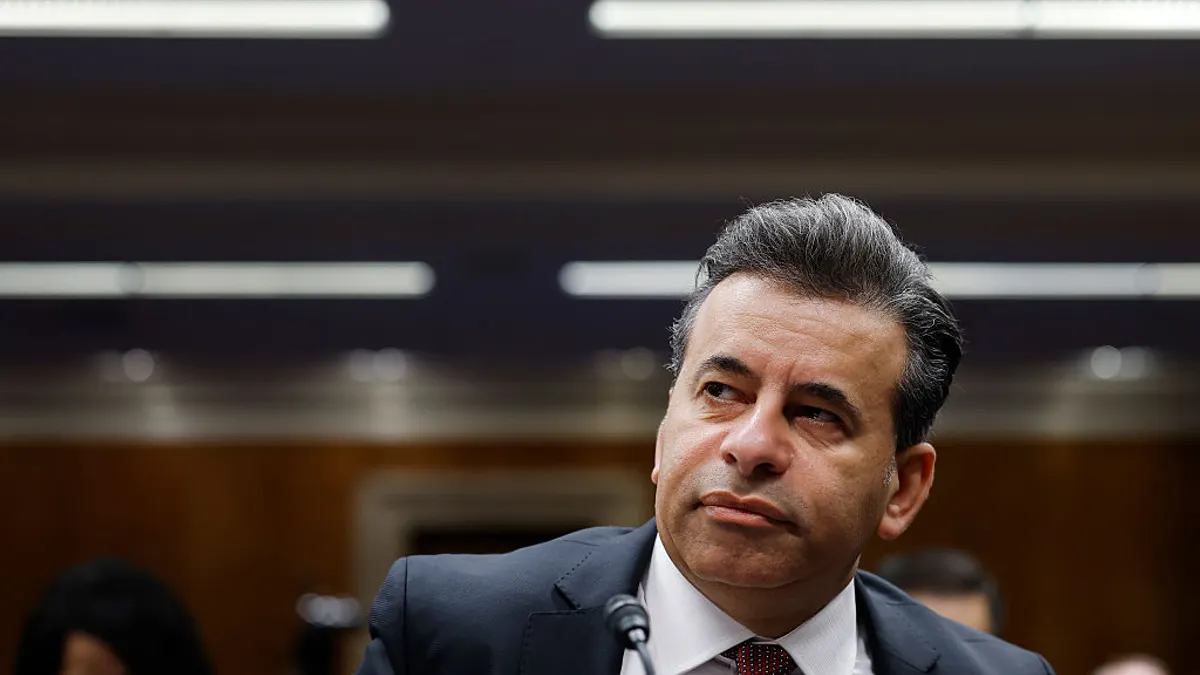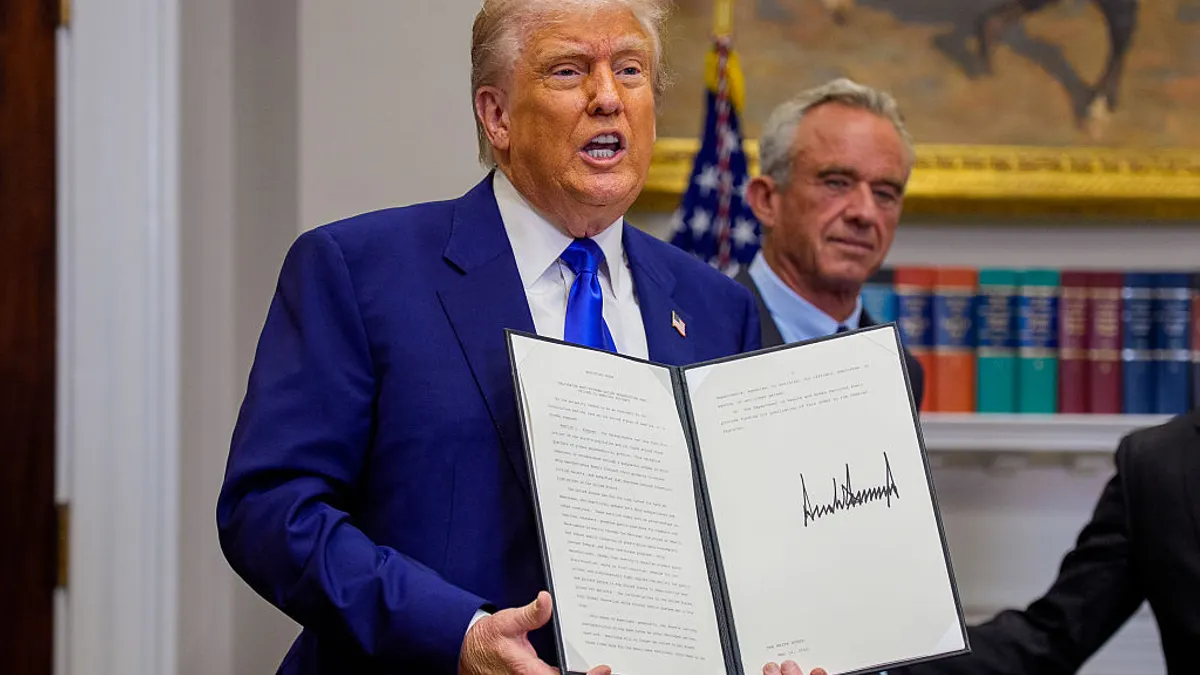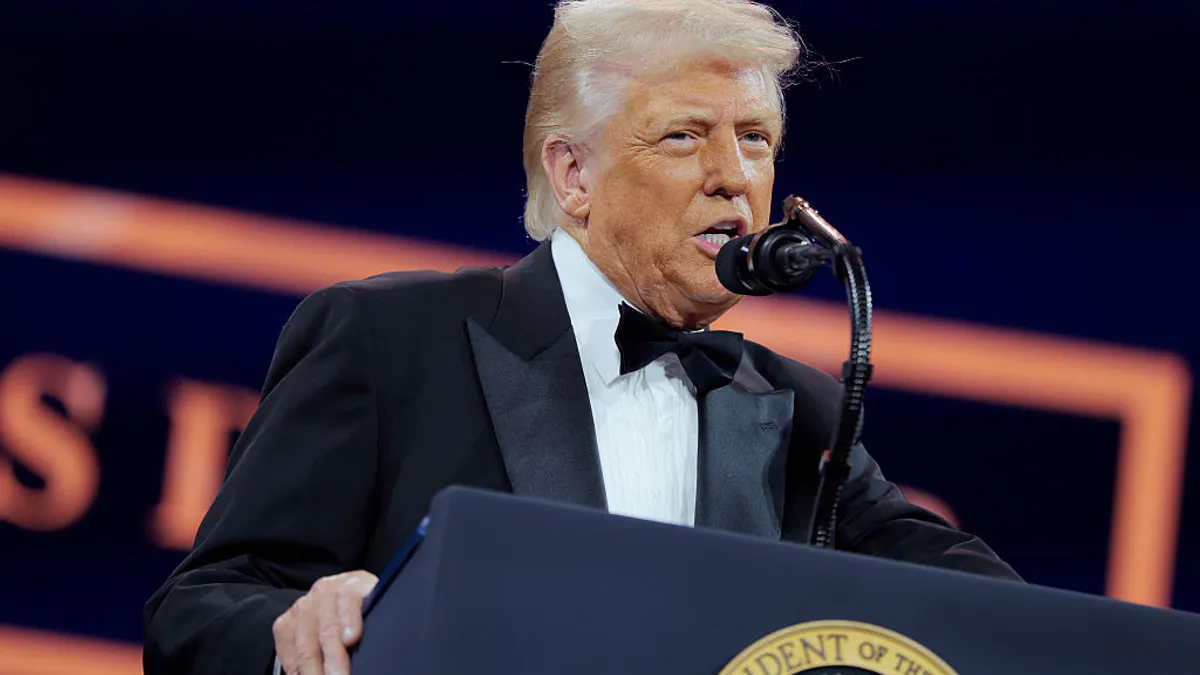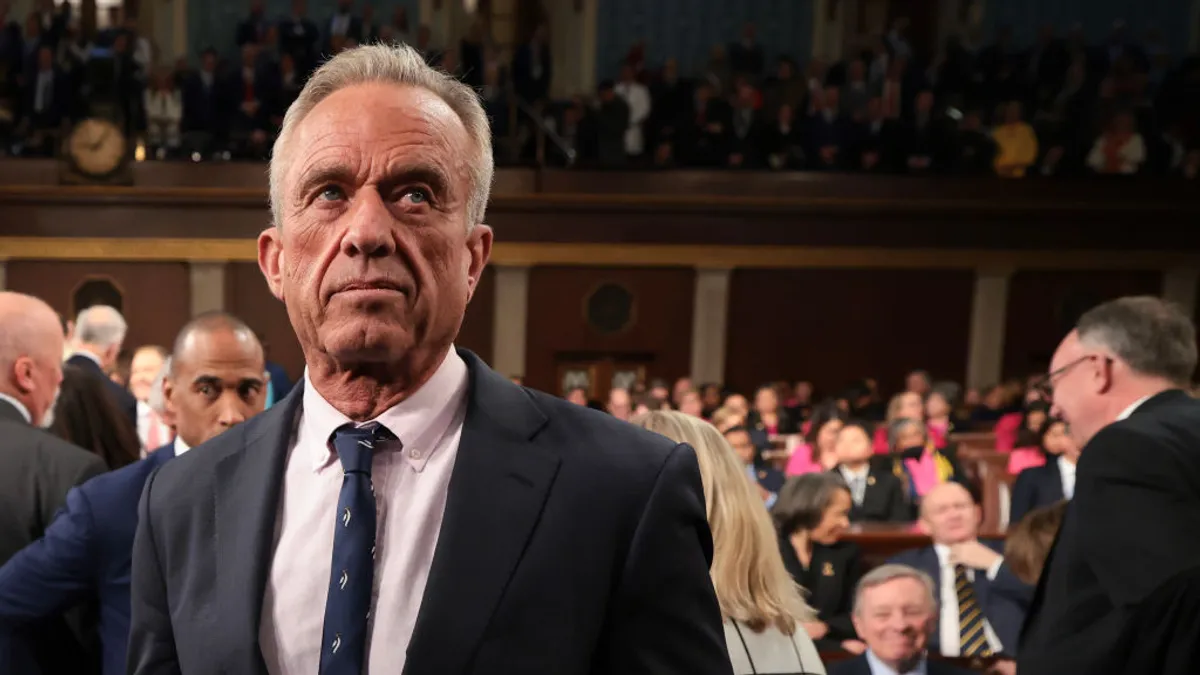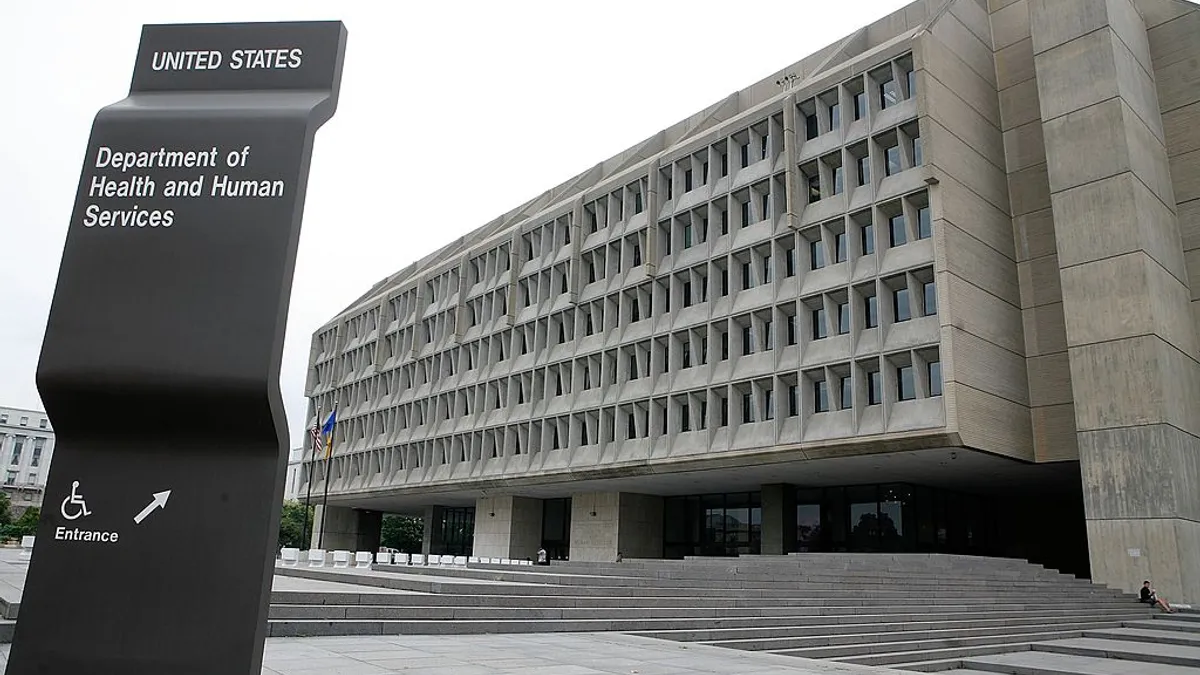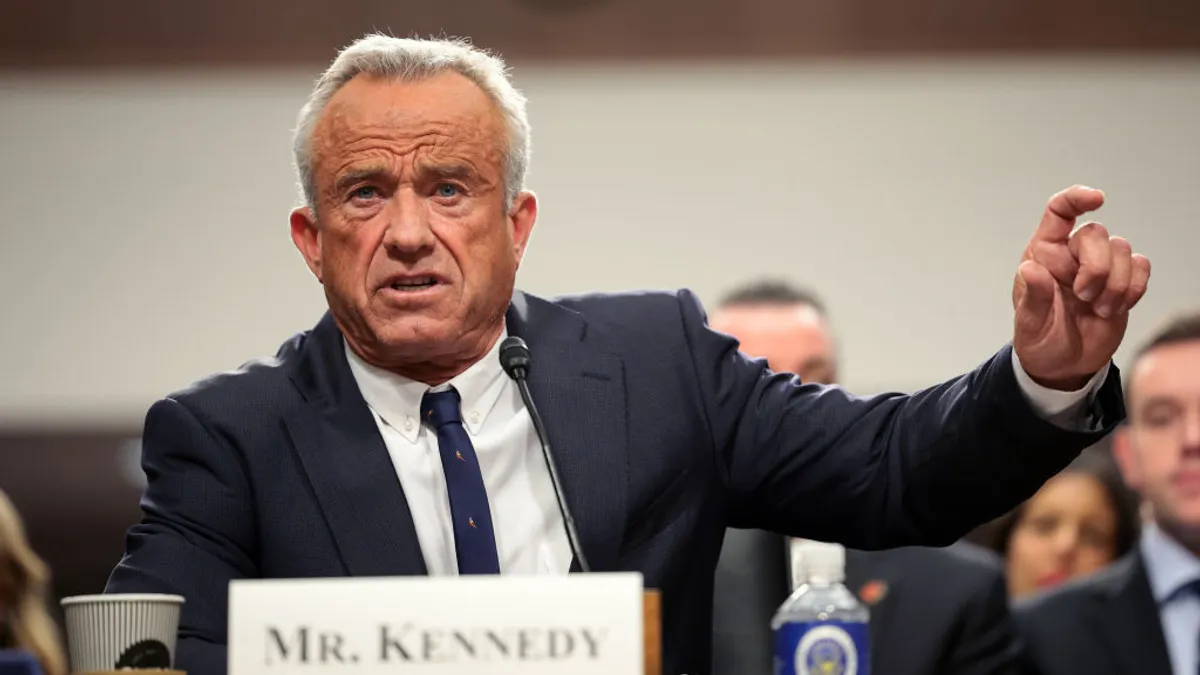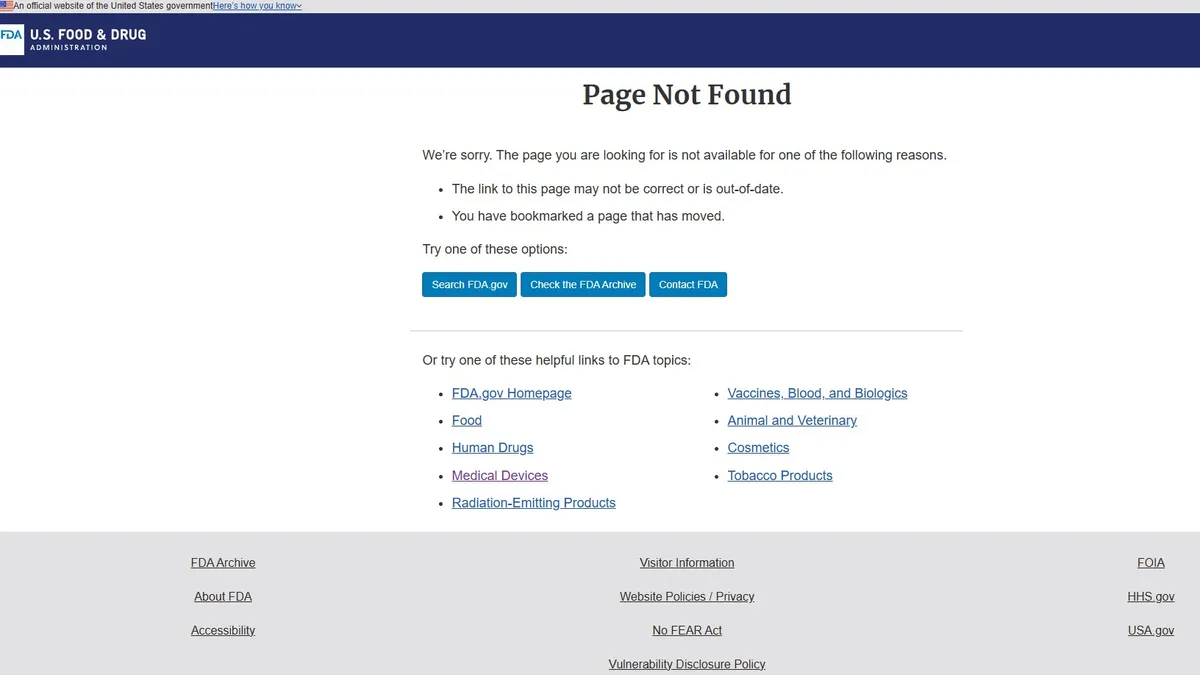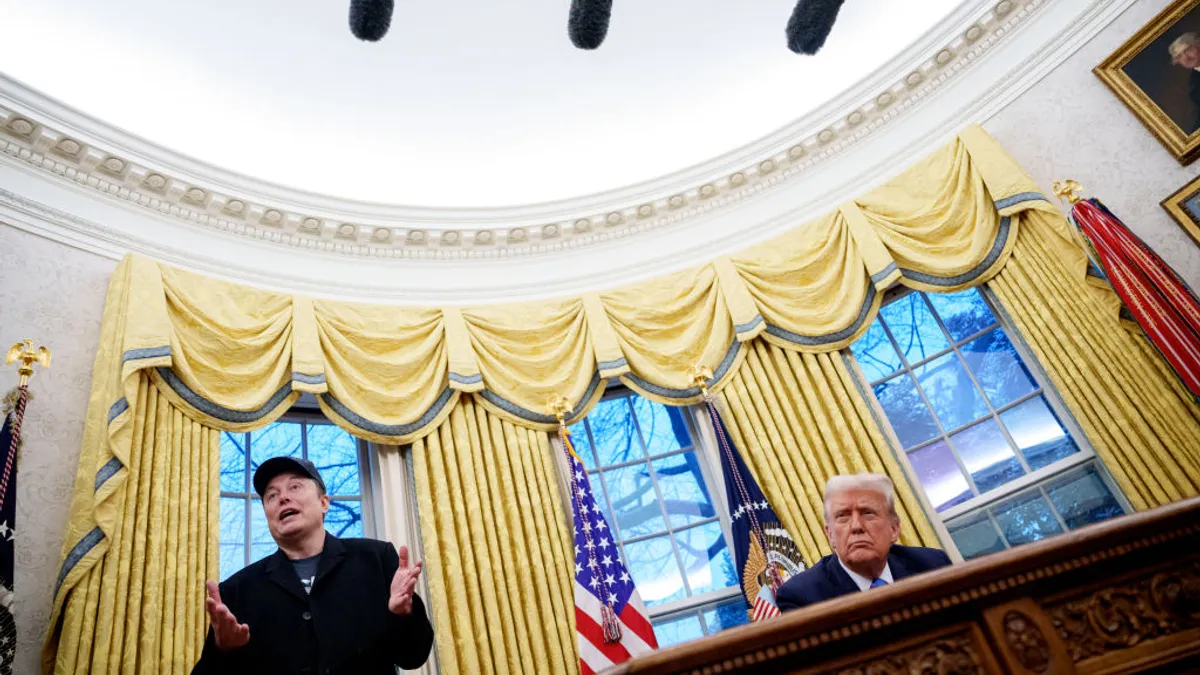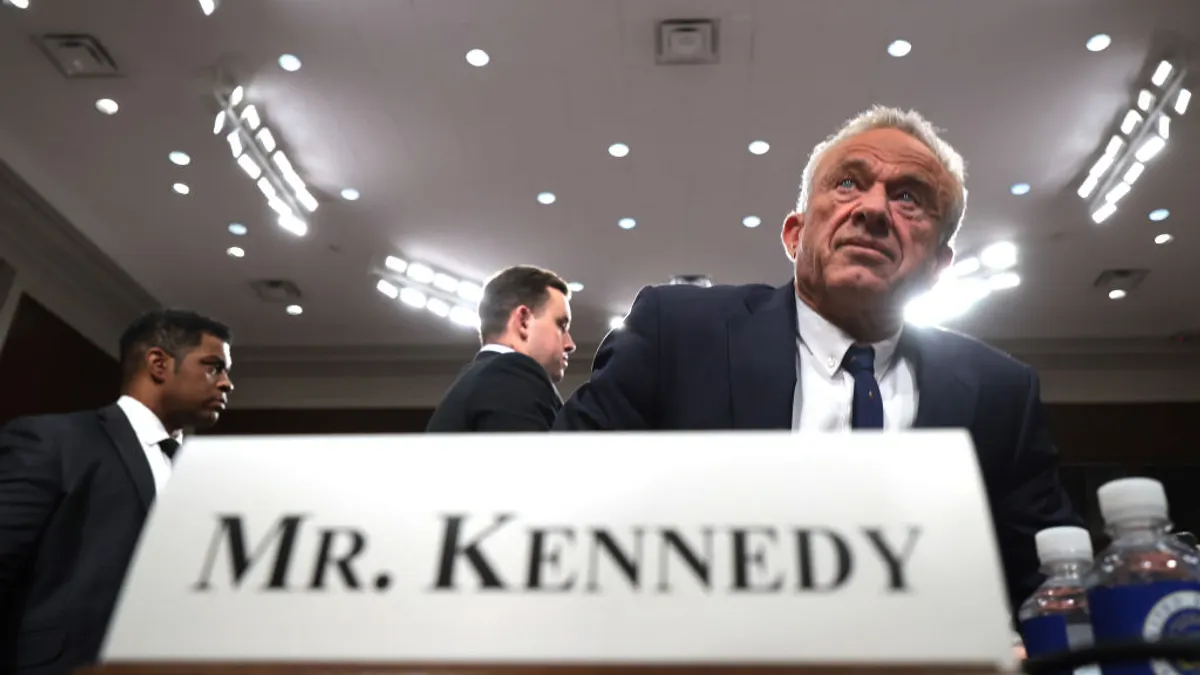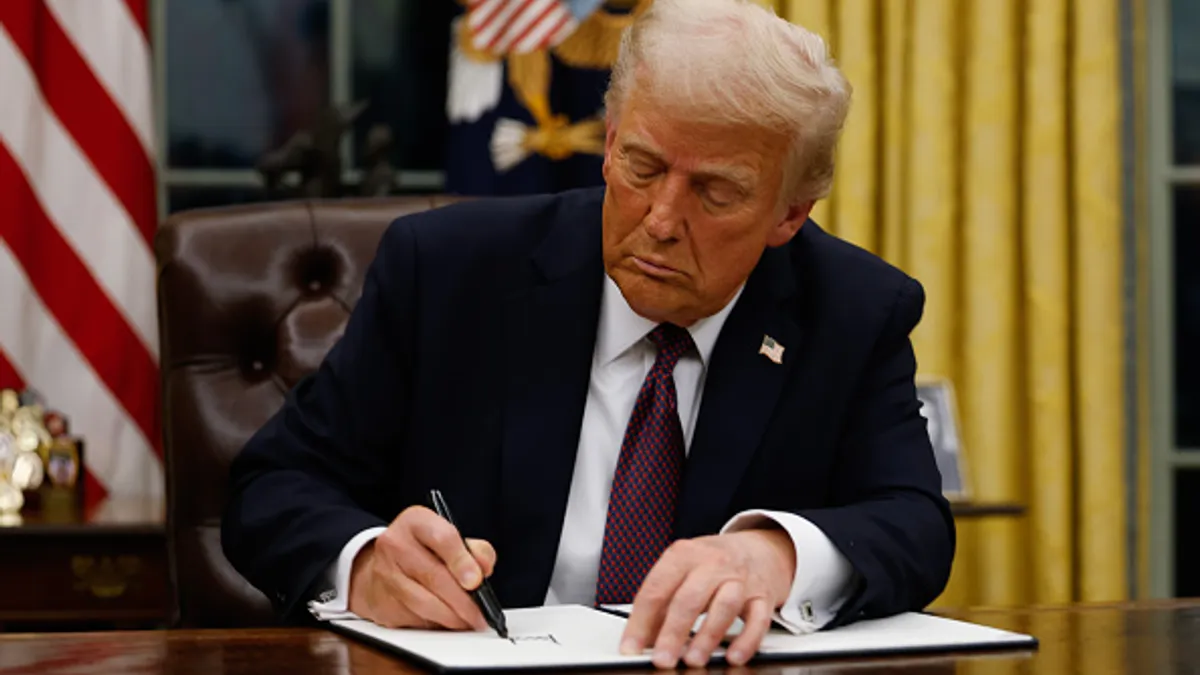Dive Brief:
- The Federal Trade Commission will continue to use stricter guidelines inked by the Biden administration in reviewing corporate mergers, FTC Chair Andrew Ferguson notified staff on Tuesday.
- Finalized in 2023, the guidelines raised the bar for antitrust review and as such have been broadly opposed by the private sector. Their preservation complicates expectations the Trump administration would be more open to industry consolidation.
- Ferguson said he felt the need to clarify the FTC’s deal review process after the agency received a flood of new premerger filings since new submission requirements became effective earlier this month.
Dive Insight:
In the memo, Ferguson stressed the importance of retaining stability in the merger review process across different administrations, after being asked “a number of times” about the fate of the Biden administration’s guidelines.
The merger review requirements finalized by the FTC and the DOJ in December 2023 are significantly more critical of consolidation than past guidance. They give regulators more tools to target vertical and cross-market deals that historically were difficult to challenge, including insurer acquisitions of physician practices, along with private equity “roll-ups” of multiple companies.
The guidelines are non-binding, but are a roadmap regulators use when deciding what mergers to challenge. Courts also use them to determine the legality of proposed deals.
“If merger guidelines change with every new administration, they will become largely worthless to businesses and the courts,” Ferguson said, adding that reworking guidelines should be done “sparingly” given enforcement agencies’ limited resources.
In January, President Donald Trump tapped Ferguson, a conservative antitrust attorney who’s been an FTC commissioner since last year, to replace Lina Khan as agency chair. During her time at the helm of the FTC, Khan was targeted by Republicans for her aggressive approach to antitrust enforcement.
However, Vice President JD Vance said last summer he supported the former chairwoman. Vance’s philosophical alignment with Khan — shared by some hard-right Republicans — has made it more difficult to predict how the FTC will operate in the Trump administration.
Still, Ferguson implied the 2023 merger guidelines could be changed pending a transparent and careful review process, according to the memo.
“By and large, the 2023 Merger Guidelines are a restatement of prior iterations of the guidelines, and a reflection of what can be found in case law. That is good reason to retain them,” Ferguson said. “That is not to say that the 2023 Merger Guidelines are perfect. No guidelines are perfect. If experience teaches that revisions are appropriate, then the agencies can consider revisions as they have done in the past.”
Ferguson’s approach contrasts with the Trump administration’s rapid efforts to cut government, including firing thousands of federal employees and restricting funding for programs that conflict with the president’s conservative agenda.
Trump’s actions — many of which are being challenged in the courts — have created chaos in Washington and for the many organizations, including providers and states, that rely on federal dollars to operate.
Trump is also trying to expand his authority over agencies like the FTC that have historically operated with a degree of independence.
The president signed an executive order on Tuesday requiring such agencies submit regulations to the White House for review and defer to the president’s interpretation of the law.



